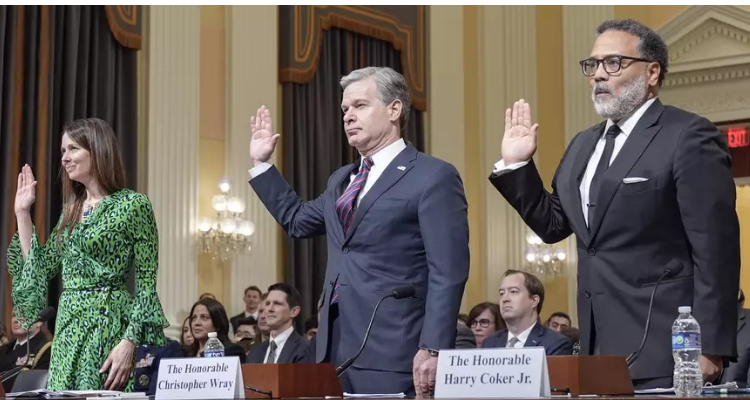FBI Director Christopher Wray has issued a stark warning about the Chinese government’s efforts to compromise vital US infrastructure, including water treatment facilities and electrical grids. Speaking at a House’s Select Committee on China hearing, Wray emphasized the urgent need for the United States to bolster its defenses against potential cyberattacks that could have catastrophic consequences for American citizens and communities.
China’s Cyber Strategy: Beyond Intellectual Property Theft
Wray’s testimony shed light on the extensive scope of the People’s Republic of China’s (PRC) cyber operations, which go far beyond the theft of intellectual property. According to Wray, PRC hackers are actively targeting critical American infrastructure, positioning themselves to potentially “wreak havoc and cause real-world harm.” This strategic positioning across civilian infrastructure suggests that, in the event of a conflict, attacks on civilians would be an integral part of China’s plan.

The FBI Director’s remarks come at a critical time when the committee is considering the budget allocations necessary to counter such threats. Wray highlighted the massive scale of China’s hacking program, noting that it surpasses the combined efforts of all other major nations. He pointed out the significant resource disparity, stating that even if the FBI dedicated all its cyber personnel to counter China’s cyber threats, they would still be outnumbered 50 to 1.
The Role of the Cybersecurity and Infrastructure Security Agency (CISA)
Jen Easterly, the director of the Cybersecurity and Infrastructure Security Agency (CISA), also testified before the committee, echoing Wray’s concerns about the vulnerability of US infrastructure to Chinese cyber actors. Easterly criticized the inherent insecurity in the technology underpinning critical infrastructure, attributing it to decades of software developers not being held liable for technology defects. This lack of accountability, she argued, has prioritized features and speed to market over security, leaving the nation exposed to cyber threats.
Easterly urged infrastructure entities to collaborate with CISA to take advantage of free vulnerability scanning services. She stressed the importance of developing technology that is secure by design, to prevent cyber actors from exploiting technological flaws to infiltrate critical infrastructure.
The Path Forward: Acknowledging Cyber Risk as Business Risk
The hearing underscored the necessity for a collective effort to enhance the nation’s cyber defenses. Easterly called on CEOs, business leaders, and board members of critical infrastructure companies to recognize that cyber risk equates to business risk. Effective management of cyber threats, she argued, is not only a matter of good governance but also of fundamental national security.
Read More:
- Parents of OnlyFans model Courtney Clenney, charged with murder of boyfriend, arrested in Texas
- Bipartisan immigration bill in limbo amid Trump opposition
- Trump’s bombshell bankruptcy? Possible $100 million payout to victim could break his bank
As the United States grapples with the evolving cyber threat landscape, the testimonies of Wray and Easterly highlight the urgent need for strategic investments in cybersecurity capabilities. The challenge posed by China’s cyber operations requires a robust and coordinated response to safeguard the nation’s critical infrastructure and ensure the security of its citizens.

